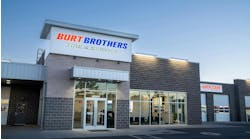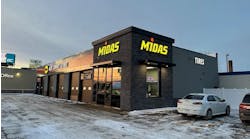Over the years, MTD has written and published columns about what tire dealers need to do from a physical store standpoint to prepare their businesses for a sale.
These are things like freshening up the look of their showroom, deep cleaning the shop and restrooms, making sure the bay doors work properly, throwing out old equipment and so on.
This column will cover things that tire dealers should do to get their books and financial situation squared away before putting up a business for sale.
Let’s start with the income statement, as profitability drives valuations of all tire businesses whether they are retail, commercial or wholesale.
The first line is sales. What all buyers want to see are increasing sales, not decreasing sales, so do whatever you need to get revenue increasing. For retailers, I’d use a combination of enhanced targeted marketing, coupled with better execution of the sales and inspection process. All businesses should have sales contests and new sales incentives if the old ones are not working.
But don’t let higher sales come with lower gross profit margins. Increase pricing for tires and parts where you can and raise your labor rates if they are low. Price increases help goose the top line, too, you know.
Next, focus on expenses. In most businesses, the big expenses are payroll, rent and marketing. Can you trim deadweight from the payroll without missing a beat? If yes, do it. Showing you can thrive with fewer people should allow you to add back those salaries from prior periods.
Make sure that rent is set at fair market value. Get a broker’s price opinion or do an appraisal if you own the properties to help you arrive at fair market rent. Moving to fair market rent now helps solidify the property value and gives you time to make up for a profit shortfall if your rent needs to be increased.
In marketing, as with any other expense, see what you can trim without impacting customer traffic and sales. I’d be doing less “institutional” marketing in favor of more targeted advertising that drives sales now.
Don’t worry about your personal expenses being run through a business. All buyers have seen this. You just need to be able to prove that they won’t be there after a sale to get credit for those addbacks.
All the above impacts the bottom line. But I’d also consider developing a short-term profit improvement bonus for all your location managers. This gets everyone focused on what matters most now.
I have no problem telling buyers that a client has implemented the above sales and profit enhancement program prior to a sale. As long as we’re transparent, there’s no issue. I would never hide it, however, as it will certainly come out in due diligence or after the sale from an employee.
Now, let’s turn to the balance sheet.
Cash is the first line of current assets. If you carry excess cash in the business and are not a C-Corp, cut yourself a check. You’ve already paid tax on it. If you are a C-Corp, dividend excess cash to the shareholders as there is no need to leave that cash in.
With accounts receivable, just follow your normal policies and please don’t squeeze customers into paying early. Write off uncollectable receivables and use the write-off to minimize your taxes.
If you don’t already do it, take a tire inventory and sell off the old stuff. I saw once where simply announcing a program of periodically costing down dead inventory and charging the store for it was all that was needed to get managers focused on moving out dead stock.
I often see notes receivable to employees and family members on the books. Those will be your responsibility after a sale, so do what you can to collect those or write them off.
Take an inventory of your shop equipment, tools, trucks, computers, software and furniture and fixtures. Make sure that the equipment you have is functional and useful in the daily operation of the business.
You should have an equipment register or list as part of your general ledger. Make sure this matches exactly what you have in the store. Sell or scrap old useless equipment. It’ll brighten up the place and give you more room.
Do make sure that you have been correctly paying sales taxes, as this can cause delays in the transaction process. Don’t let employee accrued vacation pile up. People not taking vacations as per your policy means the excess may be your liability at closing.
Lastly, having clear ownership records is important for all forms of organization, but particularly so for old C-Corporations. Making sure that the stock ownership records are updated and not “cloudy” is important to buyers in a stock transaction.




